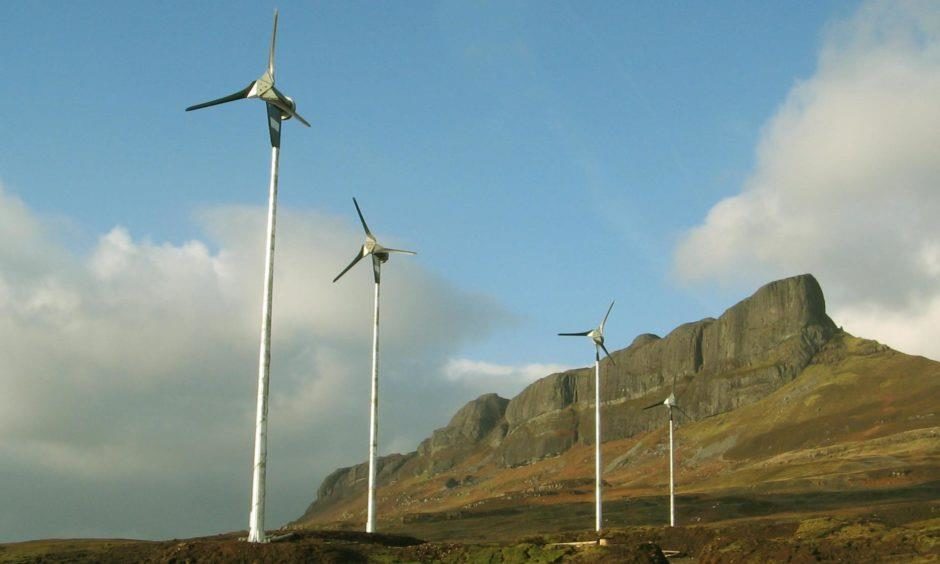
The success of the island of Eigg’s self-sufficient renewables system has earned it a prestigious European award for green energy pioneers.
The community-owned island was one of nine winners of the European Solar Prize, and the only one in the UK, presented to projects in seven countries.
The awards were established in 1994 by Eurosolar, the European Association for Renewable Energies, to recognise innovative towns, organisations and individuals.
Eigg, which was bought by the community in 1997, is not connected to the mainland electricity supply. After decades of diesel generators, Eigg Electric, a community owned, managed and maintained company, provided 24-hour power for the first time in 2008.
The pioneering, stand-alone energy system supplies all residents with renewable electricity using three hydroelectric generators, four wind turbines and a photovoltaic array.
Renewable sources provides around 95% of the island’s electricity with the remaining 5% generated by two diesel generators to provide back up when renewable resources are low or during maintenance.
Sue Hollands, director of Eigg Electric, a subsidiary of the Isle of Eigg Heritage Trust that owns the island, and Neil Robertson, a member of the island’s grid maintenance team, spoke at the awards ceremony, which was held remotely and streamed live.
Ms Hollands said: “We’re delighted to receive this award. It’s wonderful that our unique system has been recognised alongside other inspirational projects from across Europe and testament to all the work invested by the community over the 12 years since Eigg Electric was first switched on.
“In that time our population has grown, homes have been built and businesses have thrived. Our renewable grid has played a huge part in that success. We are now planning how the system can be expanded to meet Eigg’s ambition to be carbon-net zero in the future; to replace fossil fuels used in heating, cooking and transport with clean, green renewable power.”
The awards ceremony was told by Eurosolar president and chairman of the jury Prof. Peter Droege, the winning projects are “perfect examples of the ongoing energy system transformation”.
Other winners this year included the conversion of a 350-year old building into a zero-energy house in Switzerland; an eco-friendly camping bungalow resort in Spain; an electric ferry in Denmark; the installation of PV systems in Dutch schools; a project making biogas available to remote rural households in Germany; a campaign against nuclear hazards in Austria; a German company for its commitment to renewable energy over 25 years; and a German video on the impact of coal power.
